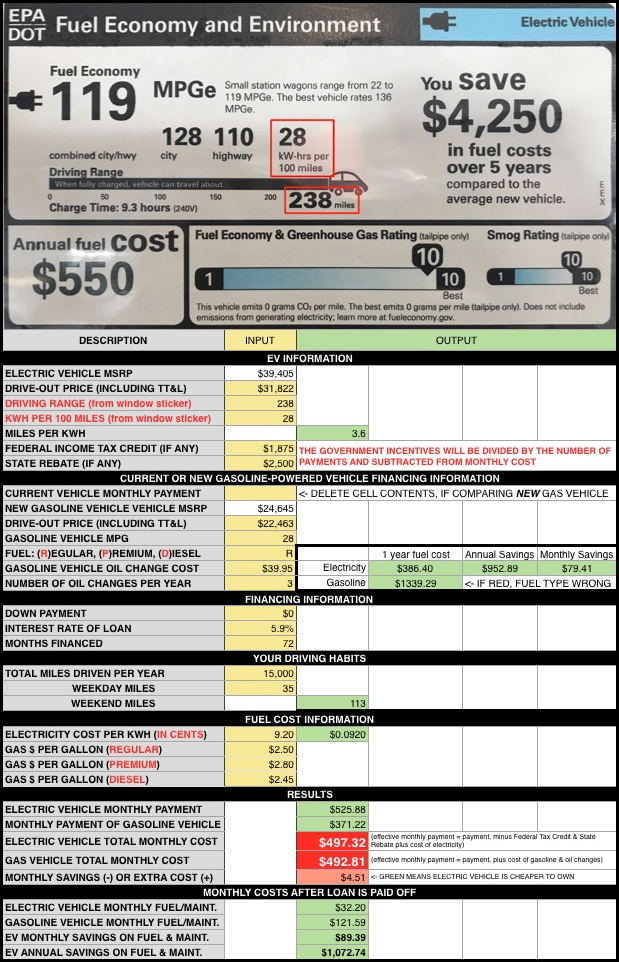The spreadsheet shown above is an actual comparison of:
- 2019 Chevy Bolt EV MSRP: $39,405 (2LT trim level), with:
- DC Fast Charging
- Cargo Mat
- Driver Confidence Package I
- Comfort & Convenience Package
- 2019 Chevy Trax MSRP: $24,645 (1LT, FWD trim level), with:
- LT Convenience Package
Just before I leased my first plug-in vehicle, a 2012 Chevy Volt, I had tons of questions. No one seemed to have the answers I needed. One question, in particular, was important to me. I wanted to know if getting the Volt was a financially smart move. I love spreadsheets, so I collected the data that was available and started having math fun.
The video below explains how to use the spreadsheet. It’s just narration for the first minute or so, then it’ll show the spreadsheet in action. Enjoy!
Analysis of cost for a hybrid poses particular problems, one of which is how much of the driving will be on electricity versus on gasoline. My spreadsheet predicted I would drive on electricity 74% of the time. At the end of the first year, I ran the numbers and found I had driven 75.23% of the time on electricity! I was pleased with how my estimate was so close to my real world experience.
Now, I’ve created a spreadsheet to take a look at 100% electric vehicles. The goal of this spreadsheet, is to compare monthly cost of a gasoline-powered vehicle versus an electric vehicle. I am looking at total cost of ownership as a monthly expenditure, factoring in fuel savings, oil change savings and government incentives.
You can download and use this spreadsheet by clicking on the links below:
- Apple Numbers version (desktop version)
- Apple Numbers version (tablet/smartphone version)
- Microsoft Excel version (desktop version)
- Microsoft Excel version (tablet/smartphone version)
- Video step-by-step instructions on using the spreadsheet



You can compare a ton of cars together via https://docs.google.com/spreadsheets/d/1LqyGI6daAHZnL4LS40XqtJKbwksmxGVnBrPIAGmtjhk/edit?usp=sharing if that’s your thing